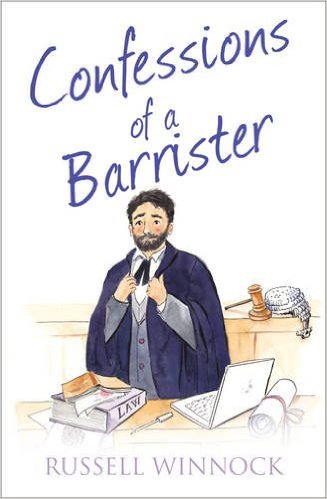Book review: Confessions of a Barrister
Confessions of a Barrister, by Russell Winnock (The Friday Project/Harper Collins, £8.99) Reviewed by Paul Magrath This is a warts-n-all depiction of life at the criminal bar, written by a junior of about fifteen years’ call, and seems to me both honest and authentic. It may lack the charm and romanticised rhetoric of Rumpole of… Continue reading about Book review: Confessions of a Barrister
Confessions of a Barrister, by Russell Winnock (The Friday Project/Harper Collins, £8.99)
Reviewed by Paul Magrath

This is a warts-n-all depiction of life at the criminal bar, written by a junior of about fifteen years’ call, and seems to me both honest and authentic. It may lack the charm and romanticised rhetoric of Rumpole of the Bailey, but shows the same kind of dogged, determined outlook on life. How much of it is true, and how much has been lightly fictionalised, as well as changing all the names, does not really matter. A novel would require a bit more art and contrivance, a better shaping of the material; but much of this reads like first person narrative fiction and is none the worse for that. There is a sort of narrative arc which culminates in a major barristerial triumph, with obstacles overcome and setbacks encountered on the way, giving the book a satisfying sense of completion.
What it can do, as non-fiction, is explain some of the less glamorous facts of life at the Bar these days without dressing them up in lurid tones of exaggeration: the vicious rivalry and performance anxiety, the hollow bravado of the robing room, the rampant sexism and secret addictions to stimulants. There’s practical information about things like page rates, ie the way criminal barristers get paid differently according to the number of pages of evidence in a case. There’s also a bit of a swipe at those who sit in the row behind, when the anonymised Winnock discusses the underhand practices of solicitors, so eager to get their hands on the “golden ticket” of a legal aid representation order, that they resort to bribing defendants with gifts of new trainers or phonecards to induce them to switch firms.
Much of it isn’t very pretty and a lot of it has come about because of two factors; first the regulatory changes that now permit many solicitors to perform the minor bread-and-butter advocacy work on which traditionally junior barristers built up their early practice; and second, the deepening cuts to legal aid which have made the cake from which everyone wants a slice so much smaller.
That said, the “lid-lifting” aspect of this book is rather less sensational, when you actually read it, than you might have expected from some of the articles written about it, such as in Legal Cheek Mysterious barrister lifts lid on cocaine-fuelled life at the bar, the Daily Mail: The secret life of barristers: Lawyer reveals what it’s REALLY like at the bar, from cocaine in court to vying for a spot with Amal Clooney on the ‘hot lawyer’ lists and rather more soberly in The Times (£) Confessions of a Barrister: inside the secret world of the Bar. But the bulk of those articles seems to have come from the publicity interviews given by the mysterious Mr Winnock, and the book itself is more circumspect.
The heavy stuff – cases about sexual offences and murder – is intercut with light relief, such as the hilarious description of a day in a rural magistrates’ court, where three lay justices and a mysterious colonel seem able to dispense acceptable local justice despite some procedural eccentricities. (The colonel appears to be an expert on the value of gem stones, a critical issue in one case. For the rest, he simply snoozed in the corner, his constitutional role unexplained to the swanky “barrister up from London, eh?”)
There’s also coverage of the recent demonstrations, walk-outs, no-returns policy and other protests by lawyers against legal aid cuts, which shows how up to date this book is, written in the midst of a practising life, not some port-soaked memoir dawdled over in wistful retirement. After one demonstration outside a court room, a fellow barrister declares: “We’re pandas and the bamboo is fast running out”. Let’s hope it doesn’t run out altogether, because whoever he is, Mr Winnock and his kind are but the latest generation of that dogged and determined breed whose sense of justice (often at their own personal cost) made the common law of England what it is.